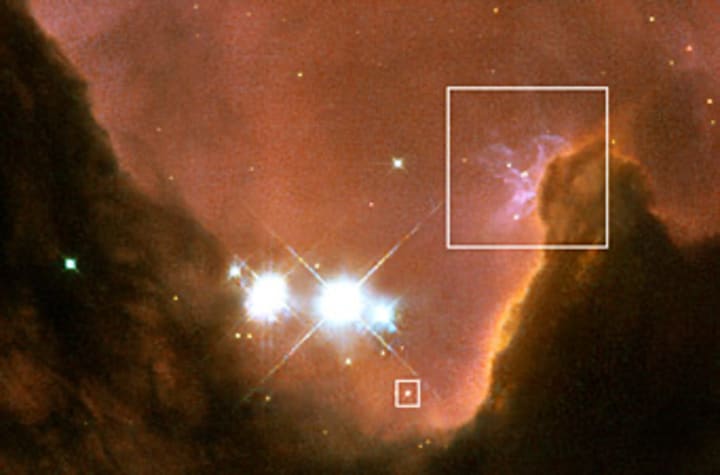The Sun's Lost Twin
Exploring the Hypothesis of a Long-Lost Sibling Star and its Impact on Our Solar System
In the vast tapestry of the universe, our sun shines as a seemingly ordinary star among millions of others. Yet, its significance to our planet and its inhabitants is profound. But what if the sun's journey wasn't one of solitude? Could there have been a twin, a long-lost companion star, that once shared the cosmic stage? Embark with us on an exploration of the captivating hypothesis surrounding the sun's lost twin, delving into its potential existence and the mysteries it could hold.
The Spectacular Birth of Stars

Our sun's origin can be traced back to the heart of a colossal molecular cloud, a celestial canvas where the elements of stars are born. These vast cosmic nurseries are composed of interstellar gas, dust, and clusters of nascent stars, each bearing the promise of unique destinies. It was within such a cloud that the sun took its first breath, evolving from a protostar into the radiant entity that sustains life on Earth today.
Cosmic Harmony: Stars in Pairs

A revelation unveiled by recent scientific models adds a mesmerizing dimension to the narrative of stellar birth: many stars, akin to our sun, are not lone entities. Instead, they come into existence with cosmic companions, sharing their cosmic voyage through the cosmos. It is within this context that the tantalizing concept of the sun's lost twin comes to life—a celestial sibling that may have once shared the same celestial birthplace and potentially shared in the shaping of our solar system.
The Quest for Nemesis: The Phantom Twin Star

Intriguingly, the quest to uncover the sun's lost twin centers around the enigmatic entity known as Nemesis. The hypothetical existence of Nemesis gained traction in the 1980s when scientists noted a recurring pattern of mass extinctions on Earth, roughly every 27 million years. This pattern, some theorized, could be attributed to a dwarf star—a concealed twin of the sun—dubbed Nemesis. The hypothesized Nemesis, thought to reside about 1.5 light-years away, could potentially exert gravitational influences on comets, leading to cataclysmic collisions with our planet.
Untangling Cosmic Cues
While the notion of Nemesis remains a fascinating hypothesis, the broader idea of the sun's lost twin continues to captivate astronomers and curious minds alike. While direct evidence for Nemesis might be elusive, the concept of a celestial companion that once coexisted with our sun offers a glimpse into the dynamic forces that shape the cosmos. The echoes of this twinless sun's influence ripple through our understanding of star formation and planetary evolution.
The Legacy of a Twinless Sun
Regardless of whether the sun's lost twin was a reality or a mere cosmic reverie, its potential impact on the early stages of our solar system lingers as a testament to the intricate interplay of celestial bodies. The twinless sun stands as a symbol of the multifaceted interactions that mold the trajectories of stars and their planetary retinues.
Exploring Cosmic Bonds
As we contemplate the prospect of a sun once paired with a celestial twin, we are drawn into a cosmic narrative that transcends the boundaries of empirical knowledge. The enigma of Nemesis and the broader concept of the sun's twin remind us that the universe's story is vast, intricate, and brimming with mysteries waiting to be unveiled. While the elusive twin star may never be definitively confirmed, its legacy shines on in our pursuit of astronomical understanding, enriching our exploration of the stars and the wondrous universe that envelopes us.







Comments (1)
Nice one!